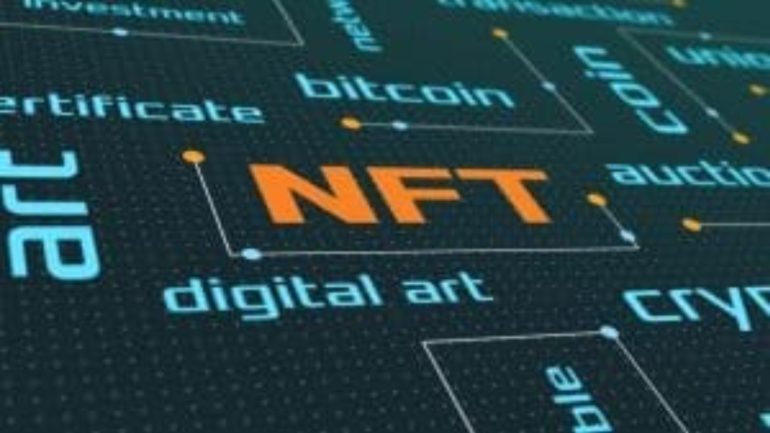- The NFT sector is becoming ever popular, but criminals are inventing new ways to steal. We look at fraud in NFTs involving chargebacks.
The market for tokenized digital assets is expanding rapidly, but fraudulent chargebacks pose an increasing risk. The value of an NFT comes from the fact that it may be used to demonstrate possession of an intangible asset, such as a digitalized piece of art or, perhaps, an exciting moment from a sporting event that took place fifty years ago. Due to their rising worth, up to 50,000 NFTs are exchanged each week. They are, nevertheless, a tempting target for online thieves.
Even though there have been numerous exciting virtual knockdowns in recent months, high-profile breaches are not the only thing that NFT players should be concerned about. As tokenized goods become more common, there are more cases of “friendly fraud,” which is when someone makes a false claim about a chargeback.
Taking care of this issue is not always simple, in particular, because non-traditional currencies are still considered to be a developing trend in the field of payments. However, with the appropriate information and tools, companies can take precautions to protect themselves while exploring the fascinating, uncharted territory of digital commerce. Let’s explore how to avoid these “friendly” NFT scams:
Purchases Safe Of NFT Scams Or Chargeback Frauds
Before you can understand how dangerous chargeback frauds or NFT scams might be, you need to know how to buy tokens.
The bulk of non-fungible token (NFT) exchanges take place on marketplaces like OpenSea and Binance, as well as cryptocurrency marketplaces like Ekrona, either through bidding similar to those on eBay or at a predetermined price. Once the transaction is complete, the buyer creates a transaction on the blockchain (a private, distributed online archive) to pay funds to the vendor, and the vendor creates a record in the blockchain to hand over control of the token.
Transactions recorded in a blockchain cannot be canceled by either party or by an intermediary institution.
To facilitate transactions, NFTs often use cryptocurrencies like Ethereum rather than traditional fiat currencies like the US dollar, Euro, or Chinese yuan. However, one of the challenges with using digital money for purchases is that the customer must keep it in a crypto wallet.
The final NFT transaction is not vulnerable to chargebacks or other forms of third-party reversal, but the purchase of the cryptocurrency used to pay for it is.
NFT Scams And Chargeback Frauds Are Being Used Together
This implies that although conventional payment methods are not involved in the exchange of NFTs or cryptocurrency in general, these transactions are nonetheless vulnerable to chargebacks and benign fraud. This creates an environment where traditional methods and cutting-edge technology collide in ways that might be easily misunderstood, allowing for the opportunity for friendly fraud.
So, let’s say a buyer decides to spend $1,000 on a piece of digital art they saw on a crypto exchange and uses their credit card to buy $1,000 worth of Ethereum there.
Good news thus far, but what if the NFT’s value suddenly drops, as it often does in the highly speculative cryptocurrency market? The buyer, desperate to recoup their funds, may consider filing a chargeback claim by making up a story about how their card was stolen before they bought Bitcoin.
Card issuers often take the side of the buyer rather than the cryptocurrency exchange when a dispute arises over a purchase. Traditional banks may have trouble keeping up with the growing number of cryptocurrency transactions. Even if a marketplace has collected enough data to dispute a fraudulent claim, it won’t be able to do so if the cardholder’s issuing bank doesn’t have the same level of information.
The customer gets their money back and keeps the original NFT, which is stored in a digital wallet that the NFT marketplace can’t access. This means that the crypto exchange has to pay the customer.
Overcoming The Obstacle
The risk of fraud for retailers and exchanges will only increase as cryptocurrency volatility and the use of NFTs continue to rise. To get around this problem, trading platforms and other market players will need to take steps to make it less likely that a chargeback will happen.
One proactive measure taken by certain marketplaces to combat chargebacks is to restrict users’ access to their funds for a set period following account creation. For example, NBA Top Shot restricts withdrawal rights to users who have worked with the site for a certain number of weeks. This is done to make sure that users don’t make a quick NFT transaction just to start a chargeback complaint.
Although this is a strong policy, it is not completely secure. The exchanges need to strengthen their security by taking measures, including developing a thorough client verification mechanism. Marketplaces can better defend themselves against fraudulent transaction disputes if they collect user data at the time of account creation.
Last but not least, NFT participants like exchanges should be prepared for chargeback disputes by having a mitigation mechanism in place that allows them to quickly collect and present evidence. Since the number of chargebacks is increasing and your firm is likely still in its early stages, it is essential to develop a strategy that will help you to comply with card issuers’ standards and win more disputes. In the case of fast-growing businesses like cryptocurrencies and NFT providers, this is particularly important to keep in mind.
The Verdict
Since the cryptocurrency and NFT industries are expanding so rapidly, they are particularly susceptible to chargebacks, which are a rising risk for companies of all types. There are a lot of cybercriminals searching for a place to make some money, a lot of real clients who are confused and overextended, and a lot of companies that don’t have the means to safeguard themselves.
There is a common misconception that developing efficient chargeback mitigation capabilities is a top goal for blockchain entrepreneurs. Your firm’s success or failure in this fascinating but high-risk market area may hinge on your ability to handle chargebacks, regardless of whether your clients are dealing with NFTs or investing in cryptocurrencies.




